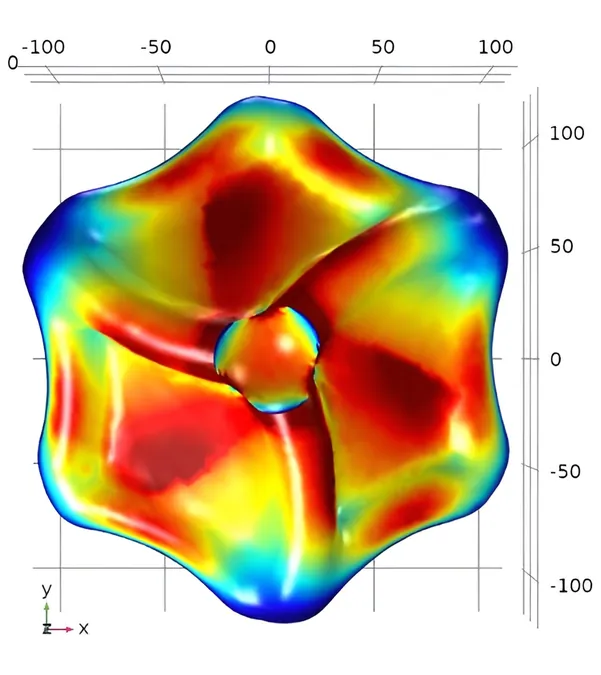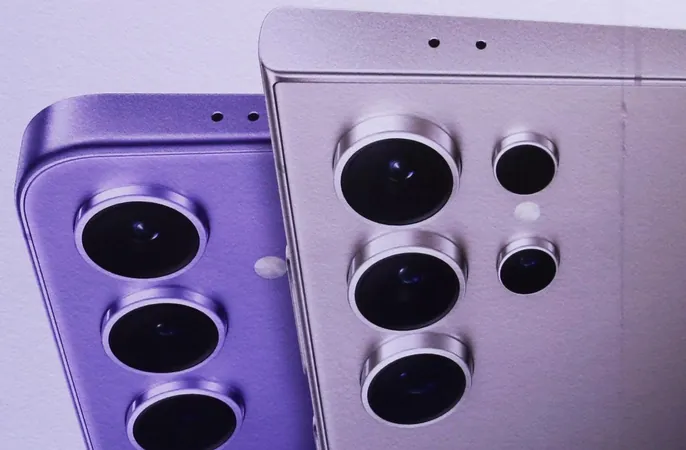
Breakthrough Microchip Revolutionizes Lung Cancer Detection: 10 Times Faster and 14 Times More Sensitive!
2024-10-03
Groundbreaking Microchip Unveiled
Researchers at the University of Michigan have unveiled a groundbreaking microchip that drastically improves lung cancer detection from a simple blood draw. This innovative technology boasts a remarkable speed increase of tenfold and is fourteen times more sensitive compared to previous methods.
Mechanism of Action
The newly designed microchip functions by capturing exosomes—tiny vesicles released by cells—found in blood plasma, which serve as critical indicators for lung cancer. Once dismissed as cellular debris, exosomes are now recognized as vital vehicles of communication between cells, carrying essential proteins, DNA, and RNA fragments.
Impact of Exosomes
Recent studies indicate that these exosomes can significantly affect tumor behavior. “Cancer exosomes leaving the tumor microenvironment prepare the tissues for a new arrival,” explained Sunitha Nagrath, a professor of chemical and biomedical engineering at U-M. “This process essentially conditions the environment, allowing cancer cells to spread more efficiently.”
Advanced Detection Capabilities
The groundbreaking aspect of this microchip lies in its ability to identify changes in the protein structure of cancer exosomes. Mutations in these proteins alter their shape, which impacts how they interact with light. By utilizing circularly polarized light, researchers can detect these unique signatures. While traditional methods struggled with faint signals, the U-M team’s design enhances detection sensitivity.
Innovative Exosome Capture
To improve exosome capture, the researchers engineered gold nanoparticles shaped like twisted disks, featuring cavities expertly matched to the size and surface chemistry of exosomes. This clever adaptation, inspired by a previous study, allows the microchip to effectively isolate exosomes, presenting stark differences between samples from healthy individuals and those diagnosed with lung cancer.
Expert Insights
Nicholas Kotov, an expert in chemical sciences and a co-author of the study, expressed his excitement about the microchip's potential. “I was amazed at how sensitive it is,” he noted, attributing this to the uniform orientation of nanoparticles within the detection device. This precision helps discern the unique characteristics of exosomes more clearly.
Future Prospects
The newly dubbed CDEXO chips, which stands for Circular Dichroism detection of EXOsomes, can also differentiate among specific mutations associated with lung cancer. This advancement could greatly assist medical professionals in selecting targeted therapies as tumor characteristics evolve.
Conclusion and Next Steps
Looking ahead, the research team plans to validate this microchip alongside traditional diagnostic tests, anticipating it will eventually be used for screening a wider variety of cancers. Nagrath highlighted the future potential, “The next step is to investigate a broader spectrum of solid tumor mutated proteins to identify their spectral differences and enhance the detection capabilities even further.” This exciting advancement in cancer diagnostics not only promises a more reliable detection method but also signifies a substantial leap toward personalized medicine, where treatments can be tailored based on the specific genetic makeup of a patient’s tumor. Stay tuned for more updates as this technology develops!









 Brasil (PT)
Brasil (PT)
 Canada (EN)
Canada (EN)
 Chile (ES)
Chile (ES)
 España (ES)
España (ES)
 France (FR)
France (FR)
 Hong Kong (EN)
Hong Kong (EN)
 Italia (IT)
Italia (IT)
 日本 (JA)
日本 (JA)
 Magyarország (HU)
Magyarország (HU)
 Norge (NO)
Norge (NO)
 Polska (PL)
Polska (PL)
 Schweiz (DE)
Schweiz (DE)
 Singapore (EN)
Singapore (EN)
 Sverige (SV)
Sverige (SV)
 Suomi (FI)
Suomi (FI)
 Türkiye (TR)
Türkiye (TR)